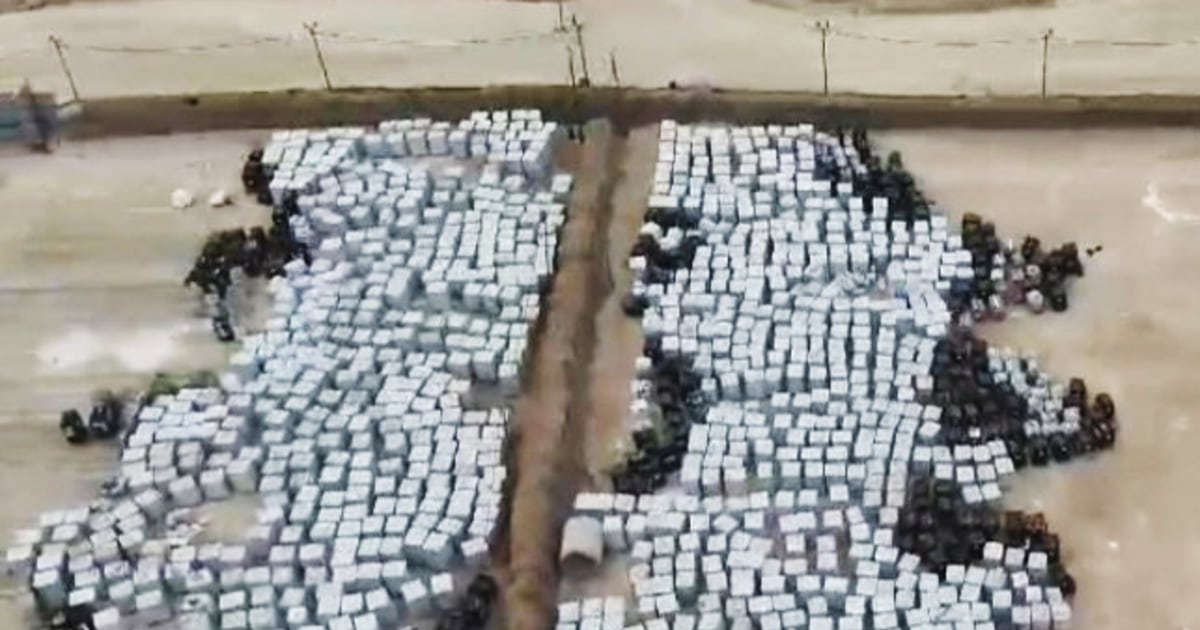Profile
Sections
tv
Featured
More From NBC
Follow NBC News
There are no new alerts at this time
TEL AVIV — A senior United Nations official, a senior Israeli official and a U.S. military commander met Wednesday night and discussed restarting aid distribution in Gaza, where roughly 12 million pounds of supplies have been sitting for 18 days, two U.S. defense officials said.
The aid has been in the Israel Defense Forces’ custody since June 9, when the U.N.’s World Food Program halted deliveries because of security concerns. Aid groups have warned that the risk of famine is growing.
Officials at the meeting, which occurred at an Israeli military base near Ashdod, included Lt. Gen. Patrick Frank, commander of U.S. Army Central Command; Maj. Gen. Yaron Finkleman, commander of the IDF’s Southern Command; and a humanitarian coordinator for the U.N. U.S. officials familiar with the meeting said they were increasingly optimistic that the aid could start moving again in the coming days.
The pier and dock system built by the U.S. military off Gaza, known as Joint Logistics Over the Shore and referred to as JLOTS, has to date brought more than 14 million pounds of aid ashore in Gaza, though the vast majority remains undistributed. But with sea states expected to rise this weekend, the JLOTS is likely to be towed back to Israel to wait out the higher waves, according to U.S. officials familiar with the planning.
The JLOTS has proven vulnerable to high waves and wind. The system has been moved back to Israel because of bad weather three times since it began operating on May 17. In one case the pier was damaged and had to be repaired in Ashdod.
U.S. officials have also been discussing a possible alternative route for aid delivery, the two defense officials said. Future deliveries could go via Ashdod, about 20 miles above the Gaza Strip’s northern border, instead of the dock and pier JLOTS system constructed by the U.S. military. Ground and maritime deliveries have proven a challenge, with heavy seas disrupting the use of the temporary U.S. pier and attacks on truck convoys.
The U.S. did a test run of the alternative route this week, delivering 300 pallets of aid by ship to an existing fixed pier in Ashdod, the defense officials said.
If the new route is approved, aid would go to Cyprus to be scanned by Cypriot and Israeli officials, with the help of a U.S. military scanner called a T25, the defense officials said. Once it was checked and cleared, officials would spray paint each pallet and load it on U.S. military ships to transit to Ashdod. The aid would be moved immediately to a crossing into Gaza without further screening.
A U.S. official involved with humanitarian efforts in the region said they are “hopefully optimistic” this system can be put in place in the coming weeks.
The Israeli government began allowing humanitarian aid to pass through Ashdod in April, according to an Israeli official, but the new plan would mean aid would be less likely to get held up at the port for customs and searches and could transit straight through to a border crossing with Gaza.
The U.S. hopes to curtail the looting that has plagued previous deliveries with a new surveillance system that can track every single convoy of aid to ensure the trucks make it safely to a warehouse, the defense officials said. Named the Convoy Management Board, its command center is at the Israeli military base near Ashdod, and it gives the U.S. and the IDF the ability to communicate directly with the aid agencies as they move inside Gaza.
On Thursday, the inspectors general of the Defense Department and the U.S. Agency for International Development announced that they had launched dual reviews of the delivery and distribution of U.S. humanitarian aid to Gaza by sea.
Pentagon Inspector General Robert P. Storch said, “The DoD OIG and USAID OIG are working together to address the challenges associated with this mission.”
The Pentagon review will assess the effectiveness of the military’s efforts to deliver aid through the JLOTS system, and the USAID review will assess USAID’s role in distribution of aid.
Courtney Kube is a correspondent covering national security and the military for the NBC News Investigative Unit.
Mosheh Gains is a Pentagon producer for NBC News.
© 2024 NBC UNIVERSAL
